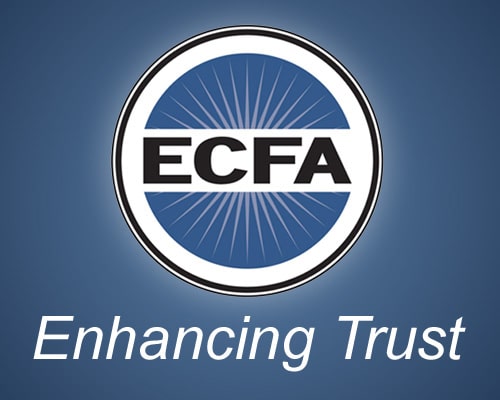Generosity is good for us and those we empower. But as someone who served for years in an organization that, without my knowledge, secretly supported abuse, I am especially vigilant about which organizations I financially support.
Sadly, despite our best intentions, our giving can fund abuse and all sorts of corruption. Why? Because abusers spin webs of deception. And Christians tend to be trusting, especially of other Christians and Christian organizations.
So how can we be generous and fund important work, yet avoid the misuse of our money? Instead of giving because it “feels right,” give according to the following important principles.
1. Only give to organizations with a public and independent board of directors
Legally and morally, the board of directors has the final say over how to spend a nonprofit’s funds.
So, if you learn that an organization’s board members are primarily family members of the founding leader, or employees of the organization, this would be a cause for concern.
Your tax-deductible gift helps our journalists report the truth and hold Christian leaders and organizations accountable. Give a gift of $30 or more to The Roys Report this month, and you will receive a copy of “Hurt and Healed by the Church” by Ryan George. To donate, click here.
By contrast, if the board members are independent of one another, qualified to provide oversight of the organization, and known to have good character, then this can build confidence in the nonprofit.
Abuse thrives in the dark, and an organization with a secretive board of directors should not be trusted. Their secrecy makes it impossible for you to verify that the board is providing appropriate oversight.
2. Only give to organizations that file a Form 990 or financial statement
In the United States, the IRS requires most charities to file the Form 990 annually. An exception, however, are organizations classified as churches or an association of churches. In recent years, numerous Christian nonprofits, like the Billy Graham Evangelical Association and Focus on the Family, have reclassified as churches and no longer have to file 990s. (Focus on the Family still posts 990s voluntarily, though.)
Organizations committed to transparency will have the Form 990 available on their websites. Otherwise, you can search for it at the IRS’s website, at Guidestar, and at Pro Publica.
I recommend looking at an organization’s Form 990s over the past few years. By doing so, you can learn if they have stable leadership, whether their funding is consistent, growing, or declining, the amount spent on fundraising activities, their main programs, and the compensation for their best-paid employees. The organization also must disclose if any of its top leaders have family or business relationships with other leaders.
If you are giving to a church, it will typically not prepare a Form 990. However, you can ask the church to provide you with a budget or financial statement.
How they respond to your questions can be as revealing as what kind of answers you receive.
You should also feel empowered to ask follow-up questions on any areas of concern.
3. Avoid organizations that require NDAs
Increasingly, Christian organizations are requiring employees to sign non-disclosure and/or non-disparagement agreements. These agreements were first used by companies trying to protect proprietary information; now they’re being used by organizations to hide abuse and corruption.
As Laura Barringer and Scot McKnight say, “NDAs discriminate against the powerless and in favor of the powerful. They block truth telling, silence the wounded, require complicity from others in power and, upon exposure, accuse churches and leaders of manipulation and deception. The gospel counters NDAs.”
As a potential or current donor to an organization, you have influence. Before donating, ask an organizational representative if they use NDAs. If they are unresponsive or resistant, this can be a red flag. By contrast, if they renounce NDAs, that could indicate a healthy culture.
It will take time for nonprofits to abandon the toxic use of NDAs. Why not accelerate that movement with your giving?
4. Ignore the ECFA Seal of Integrity
Many nonprofit organizations promote that they’re members of ECFA (Evangelical Council for Financial Accountability). However, the ECFA loses revenue whenever it terminates an organization’s membership, so it has a vested interest in certifying its members.
 Infamously, Ravi Zacharias International Ministries (RZIM) maintained its ECFA stamp of approval until February 15, 2021, after the release of the Miller & Martin report. That is, the ECFA terminated RZIM’s membership only after the release of a law firm’s report independently recognized problems with RZIM’s finances, and journalists publicized these results.
Infamously, Ravi Zacharias International Ministries (RZIM) maintained its ECFA stamp of approval until February 15, 2021, after the release of the Miller & Martin report. That is, the ECFA terminated RZIM’s membership only after the release of a law firm’s report independently recognized problems with RZIM’s finances, and journalists publicized these results.
The Roys Report and WORLD Magazine have reported other cases that reduce the ECFA’s credibility.
5. Search for problems.
Regrettably, abusive leaders and organizations are often able to define the narrative. They have more resources, access, and capacity to tell their story – and squash the testimony of survivors.
Still, there are ways you can unearth problems.
You can start by seeing if investigative journalists have noted any problems. Visit the investigations page at The Roys Report. Or search the database at MinistryWatch, which rates the top 1,000 Christian ministries.
You can also use Twitter’s Advanced Search function. As you search for the organization’s name or the name of the organization’s top leaders, you can sometimes uncover troubling stories.
Here’s one example of how to use this tool. In the “All of these words” field, you can search for “Andy Wood” and “abuse.” By putting “Andy Wood” in quotes, Twitter will only return results that include his name and the word abuse.
You can repeat this search on your favorite search engine — but check the results for the first ten pages. Why? Because sometimes, organizations will hire firms that use sophisticated techniques to manipulate what information is publicly available.
You can also check an organization’s Glassdoor reviews to see if its employees report an excellent culture. And sometimes, the organization’s Google Maps or Yelp reviews can surface problems.
Remain vigilant. One common image management tactic that abusive leaders and toxic organizations employ is to respond to survivors with character assassination. “That was a disgruntled employee,” they say. While this could be true, keep in mind that the employee might be “disgruntled” because she was first mistreated!
6. Give to organizations you know.
One giving approach is to distribute smaller gifts to many organizations. Unfortunately, too many failed organizations have reasonably reduced our trust in institutions. And the burden of carefully investigating a nonprofit before donating can be time-consuming and draining.
Giving is more manageable when I have personally experienced an organization’s effectiveness. Suppose there are no red flags, and you are familiar with the organization’s people, culture, and impact. In that case, I give with confidence.
Is there a foolproof methodology? No.
Will I sometimes get it wrong? Yes.
But with these precautions in place, I can vet the organization’s leadership and finances. I’ve earnestly searched for unresolved problems. And I’ve developed trusting relationships with organizational leaders.
One individual’s efforts may not make a difference. But you can spread the word so that we all become better informed. You can even get together with some friends to jointly evaluate charities. As practicing due diligence becomes the norm, we will make it harder for con men to get away with it.
Many worthy nonprofits and churches need our support. With our generosity, we can joyfully accelerate their efforts to do good.
Editor’s note: This article has been updated to accurately state the ECFA’s actions in response to RZIM.
Note from The Roys Report: We provide short bios on all our board members on our about page and post our financial statements on our donate page. Since The Roys Report just became a 501(C)3 organization this year, we have not yet filed an IRS 990, but will do so in 2023.
 Carson Weitnauer is the executive director of Uncommon Pursuit.
Carson Weitnauer is the executive director of Uncommon Pursuit.




















4 Responses
Julie picked an excellent article, please read it❗
The ECFA has some good standards;
https://www.ecfa.org/Standards.aspx
it’s just a pity an unknown number of its members doesn’t follow them. ????
“How To Check Your Church for Financial Transparency” ????
https://www.checkmychurch.org/post/how-to-check-your-church-s-financial-transparency
Is an excellent, short article on the topic.
Maybe so. But it’s also a clue when an organization severs ties with ECFA.
https://ministrywatch.com/the-masters-university-resigns-from-the-evangelical-council-for-financial-accountability/
Thank you Carson, this is excellent guidance when evaluating ministries we might donate to!
Great article! You can make it an annual thing to research and choose a new charity for a giving Tuesday or Christmas or your birthday. ????